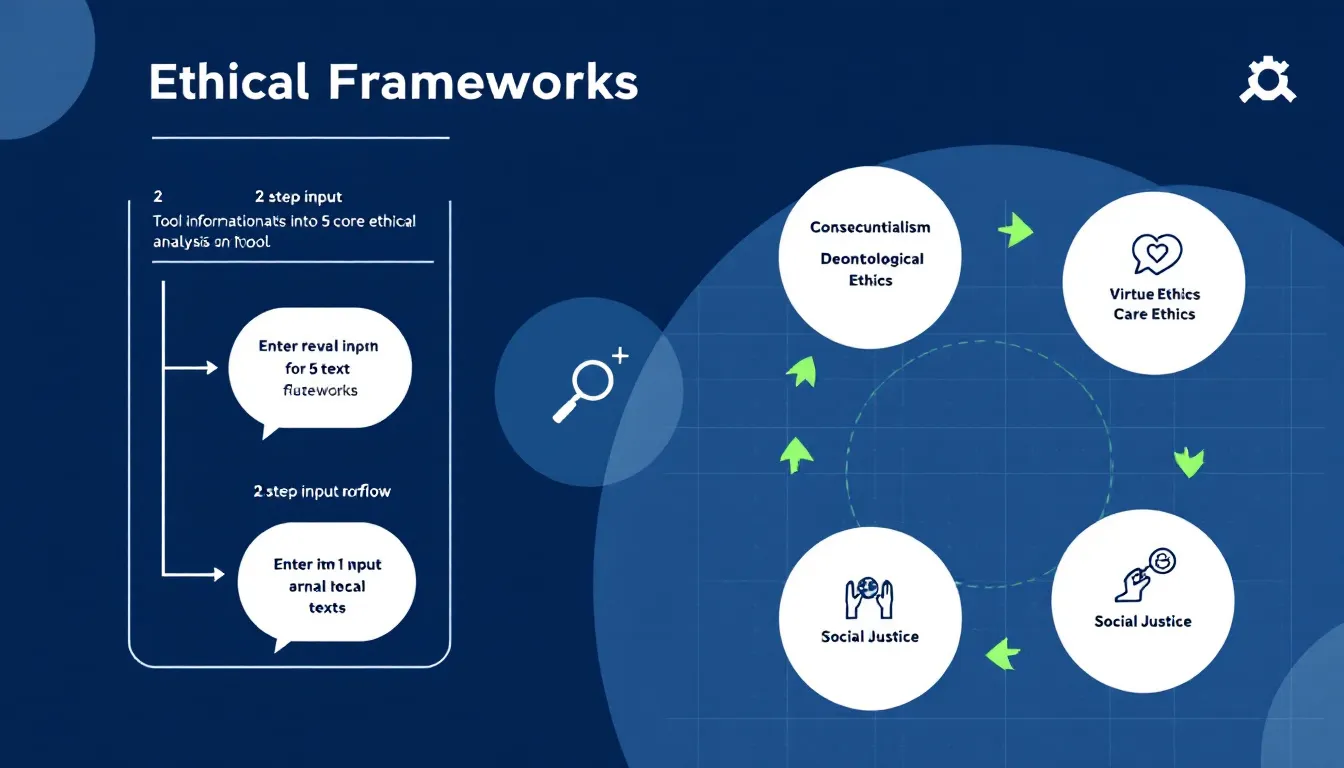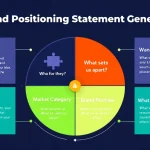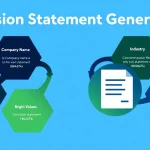Is this tool helpful?
How to Use the Ethical Analysis Tool Effectively
You can analyze moral dilemmas and ethical situations using two simple fields. Follow these steps to get clear, structured ethical evaluations:
- Describe Your Ethical Situation or Dilemma: Use the main text area to write a focused statement describing the challenge. For example:
- “Is it ethical for an AI hiring system to exclude candidates based on predicted future job performance?”
- “Should a social media platform remove content that spreads misinformation even if it affects freedom of speech?”
- Add Additional Context (Optional): Provide background details or relevant factors to help clarify the situation. Examples include:
- “The AI is trained on data that may contain biases from previous hiring decisions.”
- “The platform has a responsibility to prevent harm but also to protect users’ rights.”
Input Guidelines for Accurate and Insightful Analysis
- Provide specific, detailed descriptions of the ethical problem.
- Include relevant background information and context.
- Identify all stakeholders involved and their interests.
- Specify any constraints, policies, or legal considerations.
What is the Ethical Analysis Tool?
The Ethical Analysis Tool offers a structured way to evaluate complex moral dilemmas using various ethical principles and frameworks. It supports individuals, professionals, and organizations by breaking down ethical challenges and providing clear guidance on potential decisions.
It helps you weigh the benefits and drawbacks of a situation by considering who is affected, which moral principles apply, and what the likely outcomes are in both the short and long term.
Key Features and Benefits
- Stakeholder Analysis: Understand who is impacted and how.
- Multi-framework Evaluation: Applies consequentialism, deontology, virtue ethics, care ethics, and social justice perspectives.
- Outcome Consideration: Looks at immediate and future consequences.
- Balanced Ethical Reasoning: Helps you navigate competing moral values.
- Practical Recommendations: Suggests realistic and ethically sound solutions.
How the Tool Supports Your Ethical Decision-Making
For Individuals
- Structure your moral reasoning with clear, step-by-step analysis.
- Reduce personal bias by following a systematic process.
- Document your ethical considerations for accountability or reflection.
- Gain clarity when facing difficult personal or workplace dilemmas.
For Organizations
- Standardize how ethical issues get reviewed across teams.
- Communicate ethical reasoning transparently to stakeholders.
- Manage risk by proactively identifying ethical concerns.
- Support corporate social responsibility programs with sound analysis.
Practical Uses of the Ethical Analysis Tool
Business Ethics Example
Question: Should a company continue selling a popular product that harms the environment but is key to its profitability?
- Stakeholders: Customers, employees, local communities, shareholders
- Ethical Principles: Environmental stewardship, economic sustainability, corporate accountability
- Consequences: Pollution impact, financial viability, brand reputation
- Recommendations: Invest in greener alternatives while maintaining product availability
Healthcare Ethics Example
Scenario: How should scarce medical equipment be allocated during a crisis?
- Stakeholders: Patients, healthcare workers, the broader community
- Ethical Approaches: Utilitarianism (maximizing benefits), fairness, respect for dignity
- Considerations: Prioritizing treatment, fairness in access, long-term health outcomes
Examples of Real-World Applications
- Environmental Ethics: Weighing costs and benefits of eco-friendly policies.
- Educational Ethics: Balancing academic standards with equity and inclusion.
- Technology Ethics: Managing privacy while moderating harmful content.
Frequently Asked Questions About Ethical Analysis
What types of ethical dilemmas can I analyze?
You can analyze personal, organizational, societal, or professional ethical challenges, no matter how complex.
How detailed should my description be?
Aim for clear, focused descriptions with enough background to identify key stakeholders and issues. Typically, a few paragraphs are enough.
Can the tool handle multiple related ethical issues at once?
Yes. It evaluates interconnected dilemmas by considering their relationships and combined impacts.
How do I implement the recommendations?
Use them as a framework to guide your decisions. Adapt each recommendation to your unique context while upholding ethical standards.
Is this tool useful for group decision-making?
Yes. It helps groups align by clarifying ethical considerations and fostering structured discussion.
Can I use the results for official documentation?
Absolutely. The detailed analyses provide valuable records for accountability and future reference.
When should I conduct ethical analysis?
Use the tool regularly with ongoing issues or whenever new facts change a situation’s ethical landscape.
What makes a strong ethical question?
Strong questions are direct, clear, specific, and include relevant context about who is affected and how.
Advanced Features and Ethical Frameworks
The tool applies multiple ethical theories to provide a thorough evaluation:
- Consequentialism: Focus on outcomes and impacts.
- Deontological Ethics: Emphasizing duties and rights.
- Virtue Ethics: Considering moral character and values.
- Care Ethics: Analyzing relationships and responsibilities.
- Social Justice Perspectives: Evaluating fairness and equity.
Integrating Ethical Analysis Into Your Processes
You can incorporate this tool into your organization’s existing workflows, such as:
- Strategic planning and decision-making
- Risk management and compliance reviews
- Corporate social responsibility and sustainability efforts
- Professional development and ethics training
- Policy creation and evaluation
Enhanced Capabilities
- Systematic step-by-step ethical evaluation
- Comprehensive assessment of multiple stakeholders
- Application of diverse ethical frameworks for balanced insight
- Generation of actionable, ethically grounded recommendations
- Supports thorough documentation for transparency and accountability
Important Disclaimer
The calculations, results, and content provided by our tools are not guaranteed to be accurate, complete, or reliable. Users are responsible for verifying and interpreting the results. Our content and tools may contain errors, biases, or inconsistencies. Do not enter personal data, sensitive information, or personally identifiable information in our web forms or tools. Such data entry violates our terms of service and may result in unauthorized disclosure to third parties. We reserve the right to save inputs and outputs from our tools for the purposes of error debugging, bias identification, and performance improvement. External companies providing AI models used in our tools may also save and process data in accordance with their own policies. By using our tools, you consent to this data collection and processing. We reserve the right to limit the usage of our tools based on current usability factors.







